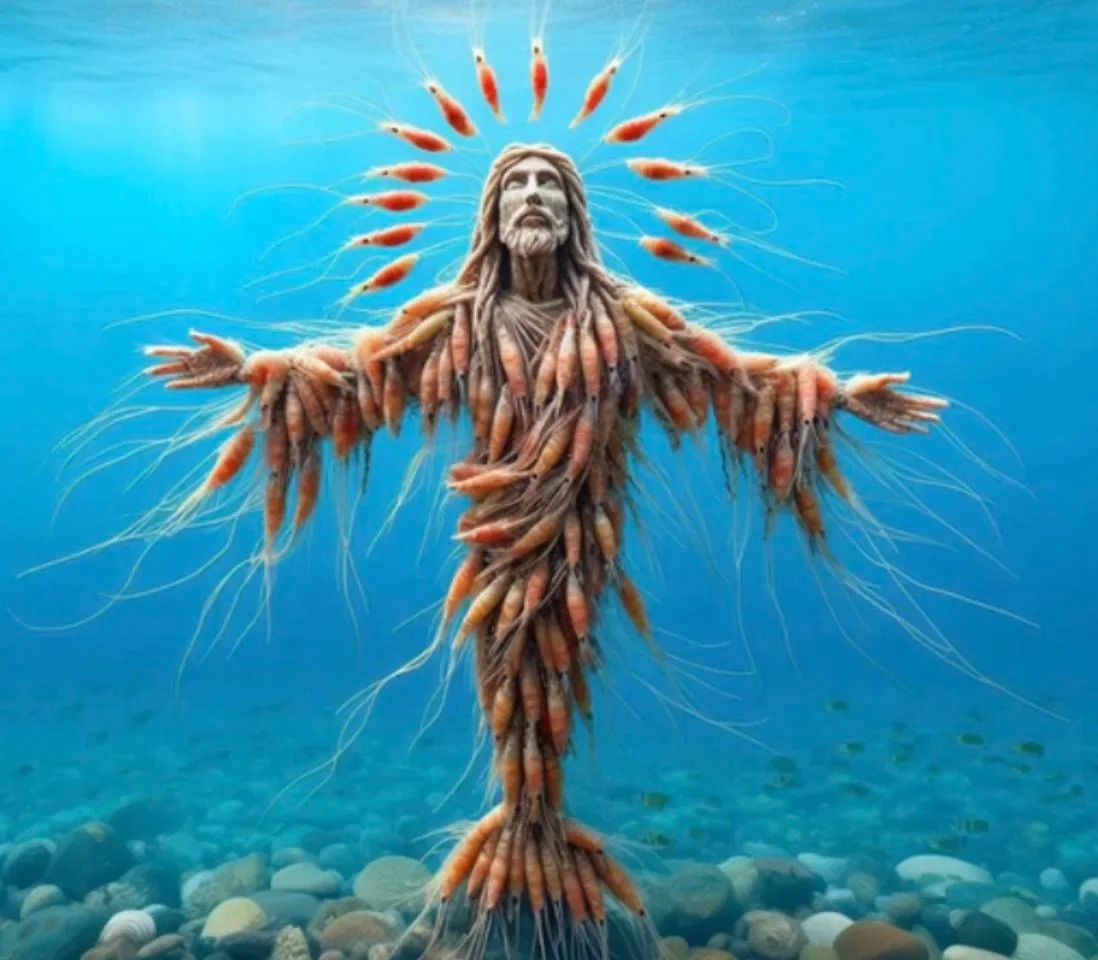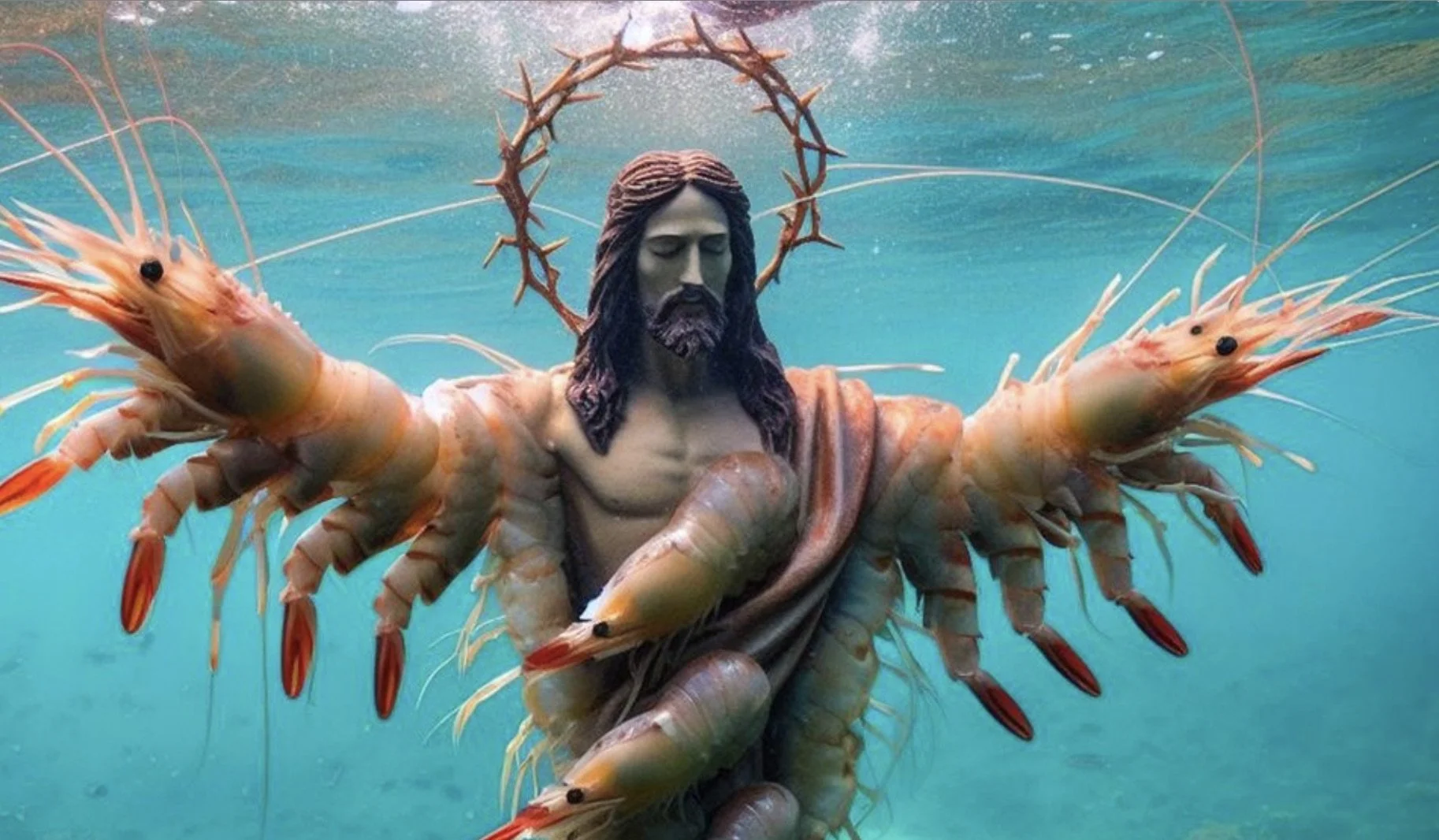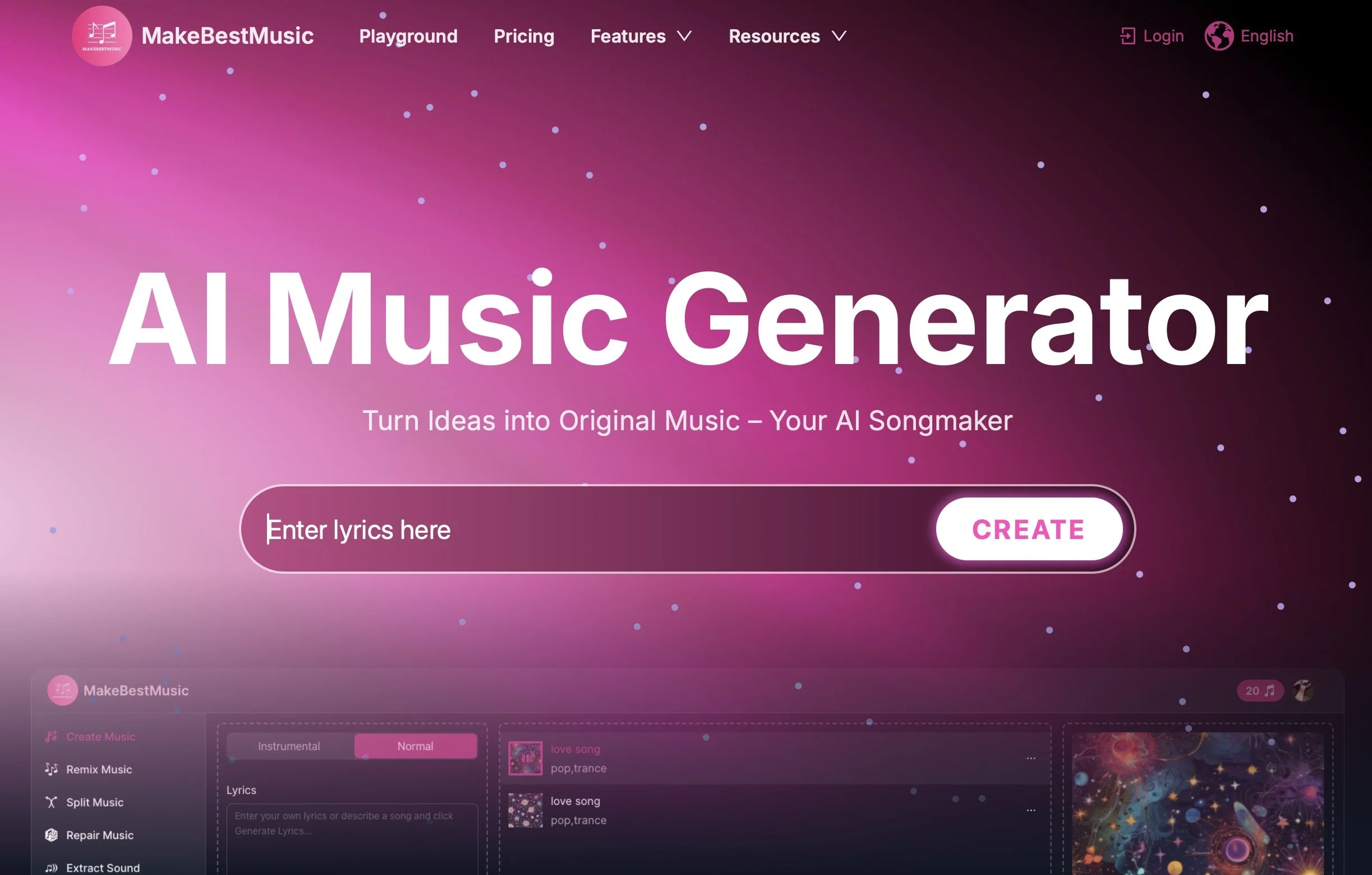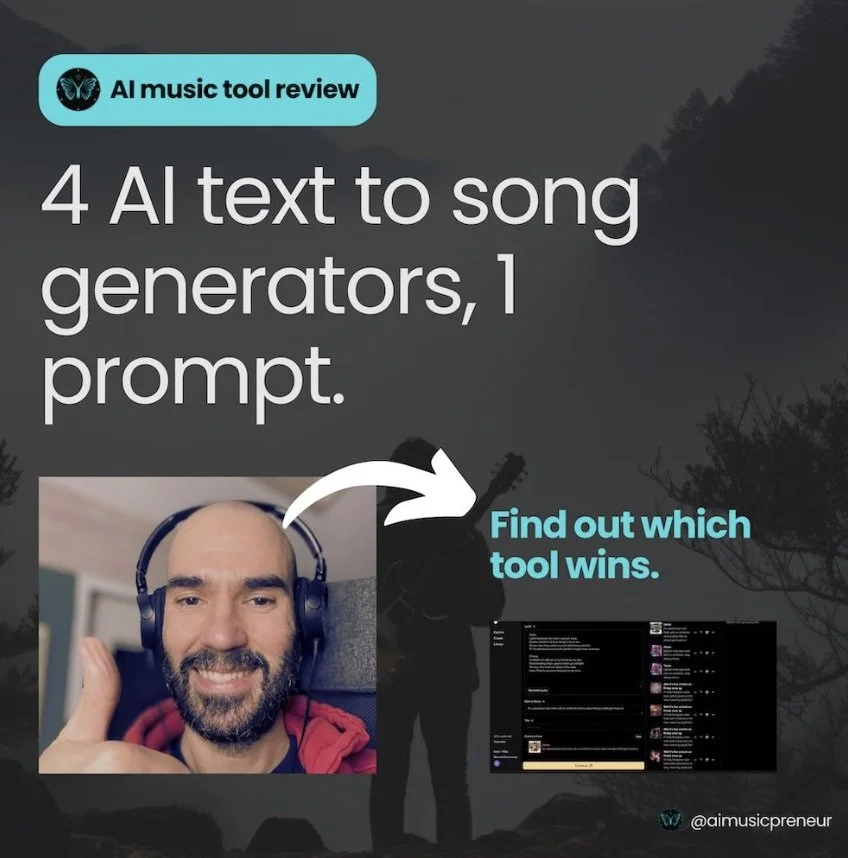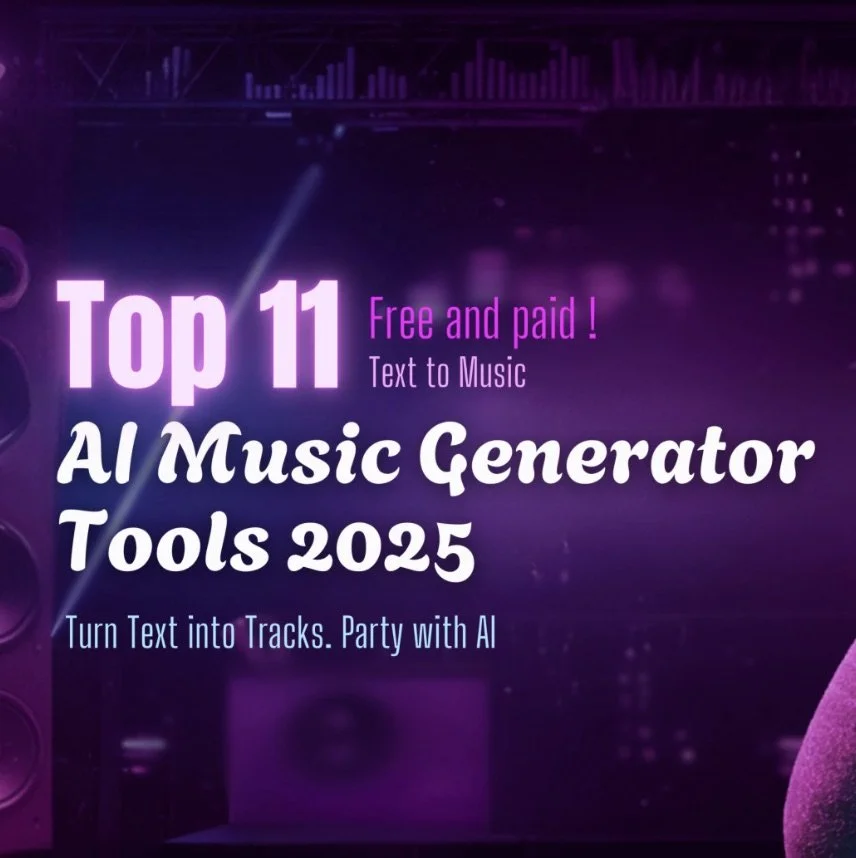The Great Slopification: Why the Future Belongs to Human Artists
Note: The factual content summarized in the first part of this article is based on the ARTE documentary “KI: Der Tod des Internets.” (AI: The Death of the Internet”) [1]. I’m sharing the key elements of that one-hour film as a context for my own reflections: on what this means for us as individual creators, musicians, and artists.
The Great Slopification
Some experts now believe that AI is slowly killing the internet. They describe a phenomenon they call “The Great Slopification.”
Slop — as in the flood of low-quality, mass-produced, AI-generated content now spilling across every corner of the web. Twitter, Instagram, TikTok, YouTube, Facebook — everywhere you look, there’s slop: AI-generated country songs, soulless “inspirational” art, fake news headlines, and endless clickbait videos created by bots.
Behind much of it are actual people — often working from content farms in India or Africa — paid to mass-produce pseudo-journalistic nonsense. Headlines like “Michael Schumacher Dead” spread purely for clicks, because every click means cash.
The result? A digital ecosystem where genuine creativity is being drowned out by algorithmic noise.
I recently came across an article on 404 Media, by Jason Koebler, that put words to what’s been happening online: the platforms are being swamped by endless AI-generated videos and images. This content is being pumped out at such speed that creators can “engagement-hack” the system — reacting to viral trends instantly and flooding feeds with cheap imitations. The writer described it as a “brute-force attack on the algorithms that control reality” t – and most shockingly, as one that “is working”. [2]
And the scale of it is staggering. There are hundreds of millions of these AI-generated posts, many of which rack up millions of views. Most people never question them. AI-generated hosts spread misinformation, political propaganda, and fake stories — often convincingly enough that viewers simply believe them.
Then there’s the surreal side of it all: the strange, almost grotesque imagery that surfaces when algorithms try to mimic human imagination — like the viral “Shrimp Jesus” phenomenon, where distorted, pink, shrimp-like versions of Christ flooded image feeds. These absurd outputs have become symbols of how far removed AI-generated content is from meaning or authenticity.
Even Amazon listings are no longer safe: fake field guides filled with incorrect information, “authors” with AI-generated profile photos from This Person Does Not Exist, and products described by hallucinating chatbots that have never seen the real world.
AI hallucinates, fabricates, lies — all without ever feeling the moral weight of deception.
And yet, it keeps producing. More, faster, cheaper. The internet is becoming less human — a swamp of synthetic noise that buries the work of creators who still care about truth, art, and beauty.
To put it in Stephen Moore’s words:
“It means that, for creators who give a shit about what they create and give blood, sweat and tears to produce output that's quality, meaningful or born out of passion, they are being drowned out by AI-generated content.” [3]
Musical Slop: The AI Flood in Streaming
Even music — perhaps the most intimate expression of humanity — is drowning in what I like to call musical slop.
In 2024, Michael Smith, a 52-year-old man from North Carolina, faced accusations of siphoning millions in royalties by uploading AI-generated songs under fake accounts [3]. He reportedly used hundreds of thousands of automated tracks to manipulate streaming platforms. These songs were streamed billions of times by bots, flooding services like Spotify, Apple Music, and Deezer.
What once was a space for human expression is now swamped with algorithmic background noise.
The problem is bigger than one individual. Across the industry, AI-generated music is being churned out at alarming rates. In April 2024, Deezer estimated that over 20,000 entirely AI-created tracks — nearly a fifth of all new uploads — were hitting its platform every day [4].
Fraudsters use bots, AI, and even humans to endlessly play these songs, generating royalty revenue that should have gone to real artists. Some even manipulate uploads to appear as if they belong to genuine musicians, siphoning off income from unsuspecting indie artists.
Streaming platforms are trying to fight back. Spotify claims to dedicate significant engineering resources to detect and remove artificial streams, while Apple Music reports that less than 1% of its streams are manipulated [5][6].
But even with these safeguards, the sheer size of the global streaming market — worth over $20 billion (according to the IFPI) — means that hundreds of millions of dollars are likely being skimmed annually by rogue operators [7].
Ironically, the very accessibility that has empowered independent artists — the ability to upload music with ease — also lowers the bar for fraud. Automated detection systems can backfire, taking down legitimate artists’ work by mistake.
Experimental classical label TNW Music, for instance, had several albums removed when manipulated playlists falsely flagged their streams as artificial. Each takedown caused delays, unexpected costs, and uncertainty for the artists [8].
For musicians trying to create meaningful work, it’s a reminder: the online world is increasingly messy, algorithm-driven, and filled with noise. And yet, in this chaos, human-made music — flawed, emotional, and alive — is more precious than ever. It’s the real, the raw, and the vulnerable that can’t be replicated by code.
The Difference between AI and Artists
Nick Cave, the Australian musician, writer, and frontman of Nick Cave and the Bad Seeds, has long been known for his raw lyricism and spiritual intensity. His work moves through grief, love, violence, redemption: all the places only a human being can go. When the BBC asked about AI-generated songs written “in his style,” Cave offered a response that cut right to the heart of what art really is [4].
“It could perhaps in time create a song that is, on the surface, indistinguishable from an original, but it will always be a replication, a kind of burlesque.
Songs arise out of suffering, by which I mean they are predicated upon the complex, internal human struggle of creation and, well, as far as I know, algorithms don't feel. Data doesn't suffer.
ChatGPT has no inner being. It has been nowhere. It has endured nothing.
It has not had the audacity to reach beyond its limitations, and hence it doesn't have the capacity for a shared transcendent experience, as it has no limitations from which to transcend.”
That hits at the very core of this whole conversation:
Art Is Born From Experience. From the messy, painful, beautiful process of being human.
An algorithm can replicate the form of expression, but never its essence.
It can predict words, not emotions.
It can simulate song, but not meaning.
And yet, AI keeps creating – or rather, replicating — endlessly.
A hollow echo chamber of pattern and probability.
No hunger, no history, no risk.
Meanwhile, the real artist bleeds, doubts, transforms — and that is the difference.
Why This Matters for Us — The Real Artists
For all of us who write, paint, make music, or share stories — this is a turning point.
It has never been easier to call yourself an artist.
But it has also never been harder to be one.
Because being an artist requires radical vulnerability, embracing flaws, and opening yourself to imperfection — in a world where machines can generate superficial perfection in less than a second.
And here’s the truth I’ve come to about being an artist:
It’s enough to be human.
AI cannot feel awe, grief, ecstasy, heartbreak.
It has no skin memory of loss or love.
It doesn’t tremble when it performs a song for the first time.
We do.
That trembling, that imperfection, that risk — that’s your artistic DNA.
Your art doesn’t have to be flawless. It has to be felt.
AI-generated content might have surface-level quality, but on a deeper level, it’s dead.
It’s art without a pulse.
The internet will eventually disappoint people.
The slopification will lead to a kind of creative fatigue.
And out of that exhaustion, I believe, a new wave of human creativity will rise — raw, personal, imperfect, alive.
A Creative Rebellion
Maybe this is the beginning of a new artistic movement — one that values presence over performance, connection over clicks.
A return to art as a human-to-human act.
We don’t need to compete with machines.
We just need to be honest.
Write what only you could write.
Sing what only your voice can carry.
Make the thing no algorithm could ever dream of — because it has never lived your life.
Because That’s the Future of Art.
Not faster. Not smarter. Not perfect.
But so - so - so real!
PS: Transparency About My Own Use Of AI
Inspired by the research for in this article, I felt called to create an AI Transparency Declaration, of how and to which extent I use AI, as a permanent pillar of my website.
Sources
[1] Mario Sixtus (Director). KI: Der Tod des Internets. Arte/ZDF, Germany, 2025. Last visited 5 October 2025. https://www.arte.tv/de/videos/122187-000-A/ki-der-tod-des-internets/
[2] Jason Koebler. “AI Slop Is a Brute Force Attack on the Algorithms That Control Reality” 404 media, 17 March 2025. Last visited 5 October 2025. https://www.404media.co/ai-slop-is-a-brute-force-attack-on-the-algorithms-that-control-reality/
[3] Stephen Moore. “Shrimp Jesus is the Future of Social Media” Trend Mill, 21 March 2025. Last visited 5 October 2025. https://www.trend-mill.com/p/shrimp-jesus-is-the-future-of-social
[4] Mark Savage. “Nick Cave Says ChatGPT’s AI Attempt to Write Nick Cave Lyrics ‘Sucks.’” BBC News, 17 January 2023. Last visited 5 October 2025. https://www.bbc.com/news/entertainment-arts-64302944
[5] Liv McMahon. “Man accused of using bots and AI to earn streaming revenue” BBC News, 6 September 2024. Last visited 5 October 2025. https://www.bbc.com/news/articles/cly3ld9wy3eo
[6] Deezer. “Deezer reveals 18% of all new music uploaded to streaming is fully AI-generated” Deezer Newsroom, 16 April 2025. Last visited 5 October 2025. https://newsroom-deezer.com/2025/04/deezer-reveals-18-of-all-new-music-uploaded-to-streaming-is-fully-ai-generated/
[7] Spotify. “Artificial streaming and paid 3rd-party services that guarantee streams” Spotify for Artists. Last visited 5 October 2025. https://support.spotify.com/us/artists/article/third-party-services-that-guarantee-streams/
[8] Stuart Dredge. “Apple talks music fraud: ‘On Apple Music less than 1% of streams are manipulated’” musically, 21 January 2025. Last visited 5 October 2025. https://musically.com/2025/01/21/apple-talks-music-fraud-on-apple-music-less-than-1-of-streams-are-manipulated/
[9] IFPI. “Amidts Highly Competitive Market, Global Recorded Music Revenues Grew 4.8% in 2024” IFPI Global Music Report 2025, 19 March 2025. Last visited 5 October 2025. https://www.ifpi.org/ifpi-amidst-highly-competitive-market-global-recorded-music-revenues-grew-4-8-in-2024/
[8] Eamonn Forde. “AI, bot farms and innocent indie victims: how music streaming became a hotbed of fraud and fakery” The Guardian, 3 June 2025. Last visited 5 October 2025. https://www.theguardian.com/music/2025/jun/03/ai-bot-farms-and-innocent-indie-victims-how-music-streaming-became-a-hotbed-of-and-fakery
